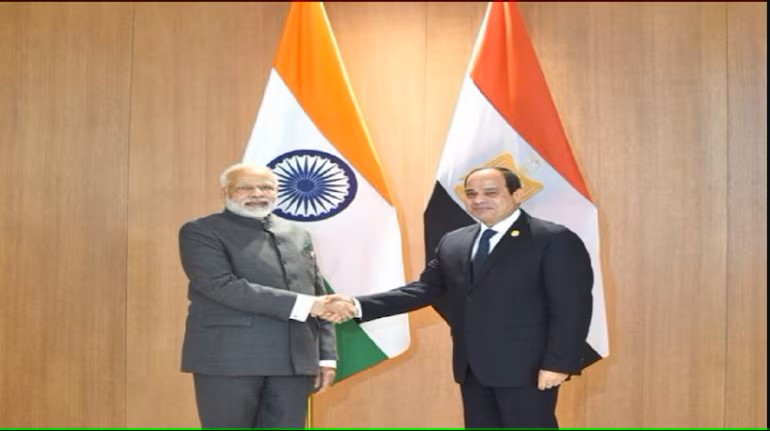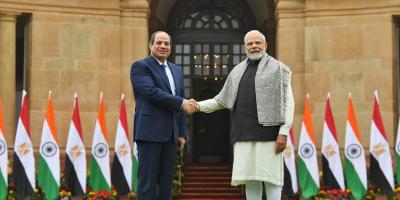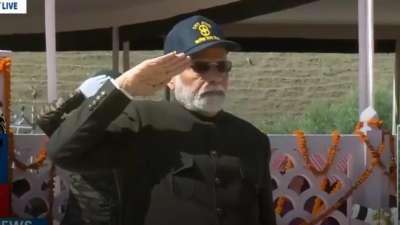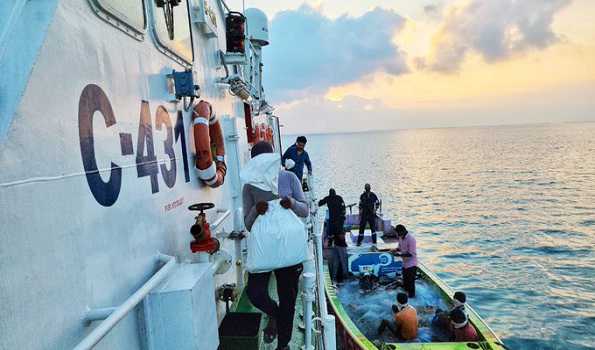At the invitation of Polish Prime Minister Donald Tusk, India’s Prime Minister Narendra Modi made an official visit to Poland from August 21-22, 2024. This visit marked a significant milestone as the two countries celebrate 70 years of diplomatic relations.
 During this historic visit, both leaders acknowledged the enduring ties between their nations and the strong bonds of friendship that have developed over the decades. In recognition of their shared commitment to maximizing the potential of their bilateral relations, the leaders decided to elevate India-Poland relations to the level of a “Strategic Partnership.”
During this historic visit, both leaders acknowledged the enduring ties between their nations and the strong bonds of friendship that have developed over the decades. In recognition of their shared commitment to maximizing the potential of their bilateral relations, the leaders decided to elevate India-Poland relations to the level of a “Strategic Partnership.”
The Prime Ministers highlighted the shared values of democracy, freedom, and a rules-based international order as the foundation of their growing partnership. They reaffirmed their dedication to deepening cooperation on bilateral, regional, and international levels to create a more stable, prosperous, and sustainable world.
A key focus of the talks was the importance of maintaining high-level contacts to strengthen political dialogue and develop mutually beneficial initiatives. The leaders agreed to intensify economic relations, boost trade and investment, and explore new areas of cooperation. They emphasized the need to fully utilize the Joint Commission for Economic Cooperation and work towards balancing trade while expanding the variety of goods traded between the two nations.
Both leaders also recognized the increasing importance of collaboration in technology, agriculture, connectivity, mining, energy, and environmental sectors. They underscored the critical role of digitalization in economic and social development, agreeing to enhance cooperation in this field, including cybersecurity, to build trust and stability.
Connectivity was another major theme, with both sides welcoming the initiation of direct flight connections and advocating for further expansion of air travel between the two countries. The leaders also stressed the importance of strengthening maritime cooperation and infrastructure corridors.
As two of the world’s largest democracies, the leaders emphasized the shared responsibility of India and the EU in promoting security, prosperity, and sustainable development in a multipolar world. They reiterated their commitment to deepening the India-EU Strategic Partnership, which would have a positive global impact.
The Prime Ministers expressed their strong commitment to peace and a rules-based international order grounded in the UN Charter. They agreed that enhancing security cooperation across multiple dimensions is vital, especially during times of global conflict and tension. Both leaders also decided to bolster collaboration at multilateral forums to uphold global peace, stability, and security.
In the defense sector, the two sides recognized the need for strengthened cooperation and agreed to fully utilize existing bilateral mechanisms, including the Joint Working Group for Defence Cooperation.
The leaders expressed deep concern over the ongoing war in Ukraine and its devastating humanitarian consequences. They called for a comprehensive, just, and lasting peace in accordance with international law and the principles of the UN Charter, emphasizing the importance of respecting sovereignty and territorial integrity. The negative global impacts of the conflict, particularly on food and energy security, were also noted. The leaders shared the view that the use or threat of nuclear weapons is unacceptable and reaffirmed the importance of upholding international law.
Both sides reiterated their strong condemnation of terrorism in all its forms and emphasized that no nation should provide safe haven to those who finance, plan, or commit terrorist acts. They called for the firm implementation of relevant UN Security Council and General Assembly resolutions, as well as the early adoption of the Comprehensive Convention on International Terrorism (CCIT).
In the Indo-Pacific region, the leaders reaffirmed their commitment to a free, open, and rules-based order, in accordance with international law, particularly the UN Convention on the Law of the Sea (UNCLOS). They emphasized the importance of respecting sovereignty, territorial integrity, and freedom of navigation to ensure maritime security and global peace.
Acknowledging the urgent challenges posed by climate change, both leaders stressed the importance of collaboration on climate action initiatives. India encouraged Poland to consider joining the International Solar Alliance (ISA) and the Coalition for Disaster Resilient Infrastructure (CDRI).
The leaders also appreciated the role of parliamentary contacts in strengthening bilateral ties and mutual understanding. They agreed to enhance cooperation between their legislatures and deepen people-to-people connections. Furthermore, they committed to expanding cooperation in culture, education, science, research, and health, with a focus on establishing future-oriented partnerships between academic institutions.
Tourism was recognized as a vital driver of economic and business opportunities, as well as a means of enhancing mutual understanding between the people of both countries.
To implement the Strategic Partnership, both sides agreed on a five-year Joint Action Plan for 2024-2028.
Prime Minister Modi expressed his gratitude to Prime Minister Tusk and the people of Poland for their warm hospitality and extended an invitation for Prime Minister Tusk to visit India.




